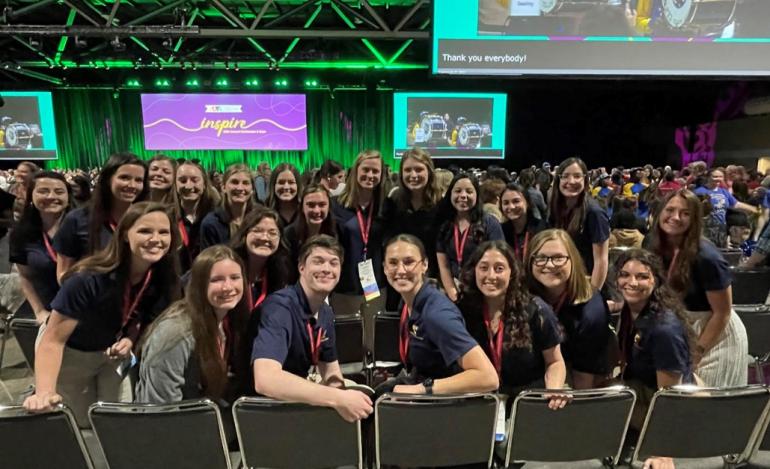What is Occupational Therapy?

AOTA Conference 2
At the University of Tennessee at Chattanooga, we feel that it is important for applicants to make informed decisions regarding their future. We want occupational therapy to be the “best fit” for a career choice.
What is Occupational Therapy? Occupational therapists help people across the lifespan participate in the things they want and need to do through the therapeutic use of everyday activities (occupations). Common occupational therapy interventions include helping children with disabilities to participate fully in school and social situations, helping people recovering from injury to regain skills, and providing supports for older adults experiencing physical and cognitive changes.
Occupational therapy services typically include:
- an individualized evaluation, during which the client/family and occupational therapist determine the person’s goals,
- customized intervention to improve the person’s ability to perform daily activities and reach the goals, and
- an outcomes evaluation to ensure that the goals are being met and/or make changes to the intervention plan.
Occupational therapy services may include comprehensive evaluations of the client’s home and other environments (e.g., workplace, school), recommendations for adaptive equipment and training in its use, and guidance and education for family members and caregivers. Occupational therapy practitioners have a holistic perspective, in which the focus is on adapting the environment to fit the person, and the person is an integral part of the therapy team. (http://www.aota.org/Consumers.aspx)
Click Here to watch a brief overview of Occupational Therapy!
To Learn More about Occupational Therapy we encourage you to visit the following websites:
- American Occupational Therapy Association
- National Board Certification for Occupational Therapy
- What is occupational therapy?
- For future predictions for this profession please visit the Bureau of Labor and Statistics